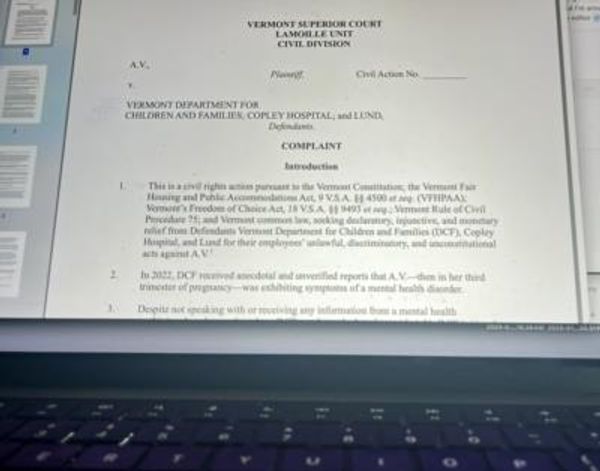
Australia’s first anti-corruption commissioner, Ian Temby QC, has panned a proposal to give a federal integrity commission the power to sack parliamentarians.
Temby, who was appointed founding commissioner of the NSW ICAC, told Crikey the idea floated by newly elected “teal” independent Kylea Tink was “wrongheaded”.
Tink defeated Liberal Trent Zimmerman for the seat of North Sydney, and has argued for the introduction of a code of conduct that would have consequences for MPs, suggesting that a new integrity commission could have the power to sack MPs if necessary.
“I think that this is wrongheaded on more than one level. Firstly, it’s not the case that the NSW ICAC has sacked any member of Parliament, although it’s commonly contended that it sacked three premiers,” Temby told Crikey. “Of course each of them chose to resign.”
“It should never be the function of such a body to sack anybody. What should happen in relation to members of Parliament or ministers or judges or anybody who holds office subject to dismissal by Parliament is that an investigation should be conducted if the allegations are sufficiently serious. Findings will then be made concerning the conduct in question. And those findings should go to the Parliament for the Parliament to decide what action, if any, should be taken.
“It must always be for those who hold the power and responsibility to take that action. And that’s how it’s been. And it’s how it should continue to be.”
Tink’s office said she had no further comment and that she “looked forward to productive and robust conversations” about the federal integrity commission.
Temby’s comments mark his first intervention in the debate over the mooted federal integrity commission, with the Albanese government promising to introduce legislation for the body by the end of the year.
The NSW model
Temby served as head of the NSW ICAC from 1989 to 1994.
He told Crikey that a new federal body “could do a lot worse” than use the NSW body as a model, although he added that NSW was not a perfect model.
“Probably the definition of corrupt conduct in the NSW legislation is more complex than it ought sensibly to be,” he said.
“The essential characteristics for such a body are that it has all royal commission powers, that it can commence its own investigations, whether on complaint or otherwise, that it must investigate anything which is referred to it by the Parliament and that it should report to the Parliament and not to the executive. It should have the power to examine matters retrospectively, not simply in relation to future allegations.
“Unless it satisfies those criteria, it’ll be ineffective and a piece of window dressing.”
On the contentious question of public hearings, Temby said it was “very important” that the body should have the power to do so provided it was a case of real significance and “judged by the commission” to be in the public interest.
“The courts don’t hold hearings in public because they think it’s fun to do so. They do so because they’re performing a public function and it’s right that they should be held to account and closely examined for their conduct in conducting hearings. And it’s only by doing it in public that they can be held properly accountable. That’s one strong argument in favour of public hearings,” he said.
Holding public hearings had also built “a strong degree of public confidence” in NSW and was a key reason why the NSW ICAC had continued for more than 30 years.
Defence procurement
In terms of specific areas, Temby nominated the multibillion-dollar defence procurement sector as one deserving of scrutiny.
“Experience tells us that whenever there’s a lot of money involved, and that money is moving around, then some people will sometimes fail to resist the temptation to grab a bit for themselves. And to my mind, it’s highly improbable that there has not been any corrupt conduct in relation to, for example, defence procurement over the years. I don’t know that that’s happened, but it seems to me to be highly improbable,” he said.
Pork-barrelling, he said, might be corrupt, though it would depend on how it was defined in the legislation.
“It will depend upon circumstances. Sometimes it may be if the conduct is sufficiently crass and obviously unjustified in the public interest,” he said.
Ian Temby’s ICAC famously bit its creator when the commission found that then premier Nick Greiner had engaged in corrupt conduct when he found a public service job for a political adversary, former Liberal MP turned independent Terry Metherell. As reported in legal newsletter Justinian, the finding was later overturned by the NSW Court of Appeal — a decision that “knocked the stuffing” out of Temby, he wrote in his memoir.
Temby’s memoir also reportedly records his “wistful” observation that Greiner “remains very bitter towards me to this day”. Now retired from the bar, Temby had put Greiner in the political furnace before, during and after his tenure at the ICAC.
As the first Commonwealth Director of Public Prosecutions (DPP), appointed by then Labor attorney-general Gareth Evans, he prosecuted High Court judge (and Labor appointee) Lionel Murphy for attempting to pervert the course of justice.
As DPP, it also fell to him to pick up on extraordinary allegations from the Costigan royal commission that Kerry Packer — codenamed “The Goanna” — was inter alia involved in drug trafficking and murder. Given a lack of evidence no prosecution ensued.







